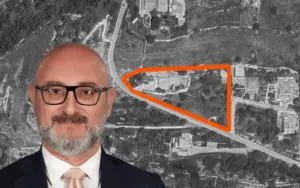Currently viewing:malta
-
Russian Man On UK’s ‘Most Wanted’ List Holds Maltese ‘Golden Passport’
-
Farmers Wait, Government Agencies and Big Operators Win: Malta’s EU CAP Funding Misses Its Target
-
Swieqi’s Summer of Overtourism
-
EU Court Ruling on Gambling Damages Downplayed in Malta
-
EU’s New Safe Countries List: Why It Changes Little For Malta And Deportations
-
From Sicily to the Dolomites: How Minister Roderick Galdes Built An Italian Property Portfolio While In Office
-
The 20-Day Flip: Fortina Sold Public Land For €40 Million Weeks After Paying €8 Million To Lift All Restrictions
-
FATTI: Has Mental Health Investment Achieved a Transformation?
-
Turkish Authorities Open Laundering Probe Into Two Firms Owned By Founder Of Maltese Payment Provider
-
FATTI: Is Malta’s Education System Preparing Students For The Future?









